
Call for Papers
New Philosophical Approaches to Emergence: Towards Pluralism. Synthese Topical Collection
Guest editors: Erica Onnis (Cusano University), Michele Paolini Paoletti (University of Macerata)
Deadline for manuscript submission: September 1st, 2025
In recent decades, emergence has become increasingly relevant for describing several natural, psychological, and social phenomena. The literature on emergence has flourished, and the scientific community has engaged in a lively debate on the topic. By and large, metaphysicians, philosophers of science, and scientists agree that emergent phenomena depend on lower-level goings-on while maintaining some degree of autonomy and manifesting novelty in relation to them. Yet, understanding the exact nature of the dependence, autonomy and novelty involved in emergent phenomena is far from straightforward, for emergence is characterised by different features when appearing in different ontological domains or examined from different disciplinary perspectives. Rather than considering this plurality of characteristics as a problem and trying to reduce them to general models, this Topical Collection will explore the ontological and epistemic potential of this plurality, providing new perspectives on the topic.
Appropriate topics for submission include, among others:
– The ontology of emergence: emergent substances, properties, relations, powers, dispositions, laws and processes
– Emergence and mereological relations
– Emergence and causation
– Emergence and metaontology: grounding, dependence, metaphysical explanation
– Emergence and contemporary debates in the philosophy of mind (perception, free will, consciousness, mental causation)
– Emergence and contemporary debates in the philosophy of science (complexity, determinism, reduction, physicalism)
– The emergence of social groups and social objects
For further information, please get in touch with the guest editors:
erica.onnis@unito.it or m.paolinipaoletti@unimc.it
Submissions via: https://www.editorialmanager.com/synt/default.aspx

Book Symposium. On Jessica Wilson’s Metaphysical Emergence
Argumenta 10,1 (2024)
Jessica M. Wilson, Précis of Metaphysical Emergence
Francesca Bellazzi, Biochemical Functions as Weakly Emergent
Karen Bennett, Emergence, Exclusion, and the Proper Subset of Powers Strategy
Claudio Calosi, A Mereology for Emergence
Nina Emery, Metaphysical Emergence within Physics: Wilson’s Degrees of Freedom Account
Simone Gozzano, The Emerging Limits of Emergentism: Systematicity
Brian P. McLaughlin, Wilson on Metaphysical Emergence
Erica Onnis, Questioning, Rather Than Solving, the Problem of Higher-Level Causation
Michele Paolini Paoletti, Not So Weak Emergence
Jessica M. Wilson, Author Meets Critics. Session on Metaphysical Emergence: Replies
Read the full issue

Namur Emergence Seminar
Namur and online, December 2024-June 2025
Faculté de Philosophie et Lettres, University of Namur, Rue Grafé 1
In the framework of Olivier Sartenaer’s MIS project “Rethinking non-reductive physicalism for the 21st century”, the University of Namur is organising a Seminar on Emergence.
Calendar
13/12/24 – Max Kistler (Université Paris 1 Panthéon-Sorbonne), Pluralist physicalism and emergence
17/01/25 – Marij Van Strien (Radboud University), Why Bohm was Never a Determinist
04/02/25 – Julien Tricard (Université Catholique de Louvain), Changing Laws of nature
14/03/25 – Alexandre Guay (Université Catholique de Louvain), tba
18/04/25 – Guglielmo Militello (CNRS), Emergence in Major Transitions in Evolutions: Eukaryogenesis as a case-study
16/05/25 – Erica Onnis (Cusano University, Rome), Emergent Novelty: Causal and Qualitative
13/06/25 – Anna Marmodoro (Durham University), The Emergence of Emergence
Can’t make it in person? Please contact gauvain.leconte@unamur.be for the link.

Yearbook for Philosophy of Complex Systems
Edited by Fausto Fraisopi and Arantzazu Saratxaga Arregi
For decades the concept of “complexity” has played a central role in science and culture in fundamentally transforming our worldview and at the same time our understanding of the world.
The “Yearbook for the Philosophy of Complex Systems” is dedicated to the scientific systematic and philosophical study of complexity as a core concept of our time from both a socio-political and a scientific point of view. The aim is to bring the broadest disciplinary treatment of complex systems into a philosophical reflection that ranges from the mathematical-physical approach to nonlinear dynamic processes and systems far from equilibrium through systemic-cybernetic perspectives on the question of the organization of systems to its application in several disciplines that have approached the term “complexity”.
The yearbook aims to provide an organ for interdisciplinary research in the broadest sense for research and research approaches on complexity and complex systems that take place in different languages methods and conceptual means and have a philosophical orientation as the basis of our knowledge. Using historical (scientific and cultural history) theoretical (i.e. epistemological and scientific theory) and media studies means an attempt will be made to implement and harmonize the concept and forms of complexity within the framework of current conceptual constellations and debates in philosophy science culture society and their combinations.
The yearbook aims to provide a broad horizon of a question as well as meeting points for scientific artistic and philosophical research that follows the guiding principle of complexity and aims to enable an interdisciplinary dialogue about a new design of thinking a new language of communication and new visions for describing complex systems.
Appropriate research areas:
– History of science and ideas (with reference to the emergence of the modern paradigm of knowledge and its crisis that has given rise to contemporary science);
– Epistemology and theory of science (with particular attention to the content and practice of modelling and transdisciplinary);
– Media Philosophy and Media Studies;
– Ontology and metaphysics (especially the debate between reductionism and emergentism);
– Art and the aesthetic question of experimental forms of exploring complexity;
– Systems theory and theories of self-organization (especially the manifestations of complexity: contingency, disruption, instability, etc.).
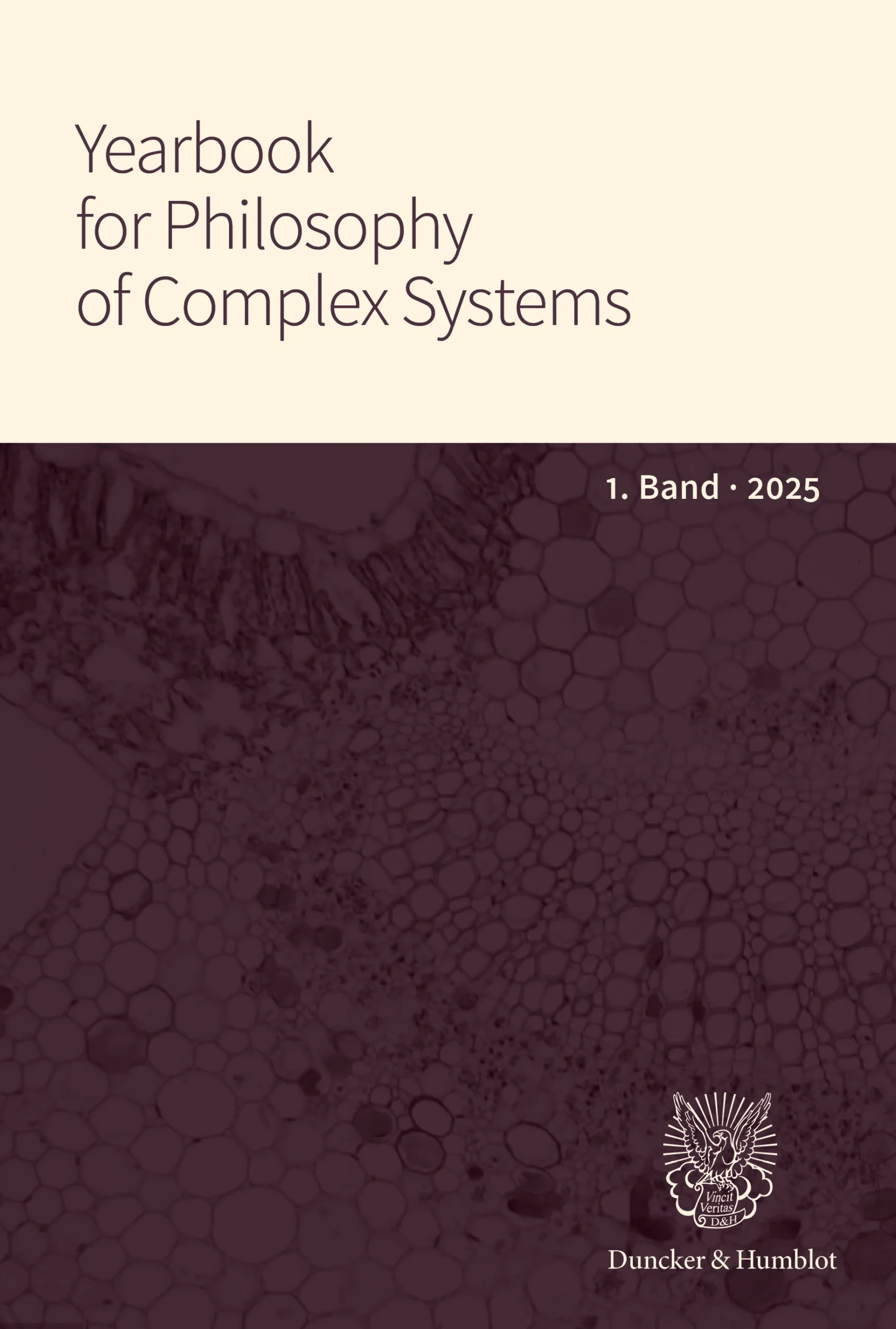

Onnis E. (2024). Between Armaments and Ornaments. Weak and Strong Emergent Patterns in Virtual and Real Cellular Automata. In A. Cuevas-Badallo, M. Martín-Villuendas, & J. Gefaell (eds.) Life and Mind – Theoretical and Applied Issues in Contemporary Philosophy of Biology and Cognitive Sciences. Springer.
Abstract. Despite the various criteria presented in the literature, most authors engaged in the debate about emergence agree on a fundamental distinction between strong/ontologically robust cases of emergence and weak/metaphysically innocent ones. The former typically involve entities that exhibit new causal capacities while the latter are primarily associated with deductive unpredictability, conceptual novelty, and other qualities that highlight our epistemic limitations in understanding them. In this paper, I initially examine a paradigmatic example of weak emergence, namely the higher-level patterns generated by virtual cellular automata (CAs) as analyzed by Mark Bedau. Then, I demonstrate that the same mechanism can be observed in real biological systems such as the dynamics governing the pigmentation ontogeny of the ocellated lizard (Timon lepidus). Unlike virtual CAs, however, real CAs produce patterns that seem to perform non-reducible functions. Therefore, I propose that despite the similarities between virtual and real CAs, the pigmentation pattern of the ocellated lizard should be regarded as a case of strong emergence. Moreover, I suggest that this analysis may shed light on the nature of biological emergent entities in general. Finally, the paper includes an addendum introducing an issue that, while not exhaustively addressed here, is highly relevant: how to metaphysically conceptualize the causal efficacy exhibited by the pigmentation patterns.
Book description
In recent times, the philosophy of science has been reinvigorated by insights from the biological and cognitive sciences. These disciplines have provided not only new perspectives to approach traditional philosophical problems but have also opened the way to new conceptual and methodological questions that call for new and innovative solutions. This book brings together some of the main debates that have structured in the last years the fields of philosophy of biology and cognitive sciences. It is organized around 11 chapters distributed in two parts: one devoted to the philosophy of biology, and the other to the cognitive sciences. These ideas were originally presented at the 11th edition of the International Philosophy of Biology and Cognitive Science (PBCS-XI) workshop held in 2022 in Salamanca, Spain.
Webpage
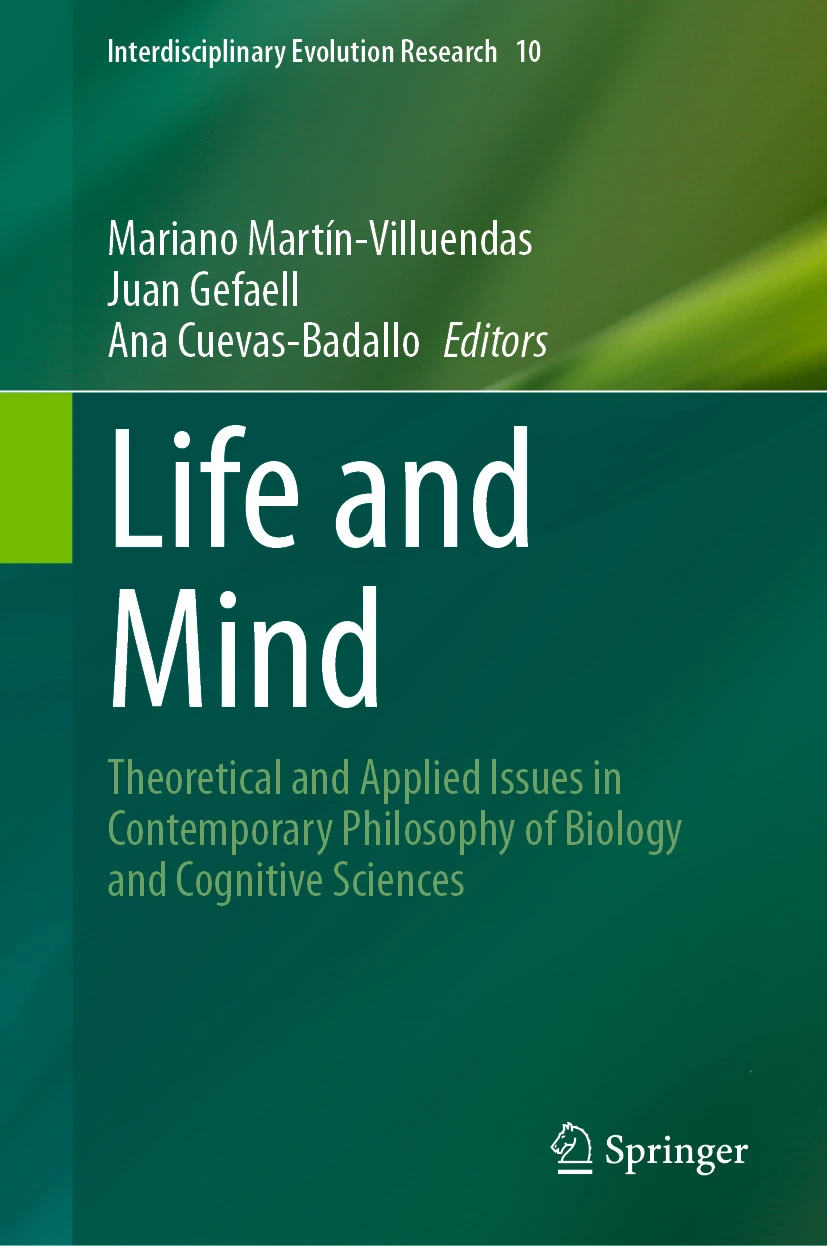
BONUS PREVIEW: A picture of an Ocellated lizard by Fabio Pupin!



Emergence, Causality, and Complexity. Workshop at the Käte Hamburger Kolleg: Cultures of Research
Aachen, November 25th-26th
Käte Hamburger Kolleg “Cultures of Research“, Theaterstrasse 75, 52062
According to many authors involved in the debate about emergence, ontological emergent phenomena can be characterized as partially dependent on a more fundamental base and causally novel in instantiating new causal properties able to make them autonomous. Moreover, emergence is often recognized as a relevant feature in complex systems, namely those systems composed of several parts mutually influencing each other and producing unexpected and sometimes highly organized behaviours. The significance of the relationship between emergence, causal efficacy, and complexity is clear. However, how to conceive more precisely this connection and the notions at play is far from straightforward.
From a historical point of view, one particular type of complex object sparked the debates that continue today: the organism. After the advent of biology as a science, the question of whether the complexity of biological phenomena introduces some kind of non-linear causality shaped the search for a middle position between mechanism and vitalism in, for example, post-Kantian idealism and, subsequently, British Emergentism which gave the middle position its contemporary name. Debates about constraints and their causal relevance in biology prove that such historical considerations are still relevant today.
The international workshop Emergence, Causality, and Complexity aims to bring together contemporary and historically inspired philosophical perspectives on the nature of emergent phenomena, their causal dimension, and their role in shaping our view of complexity.
Download the program




The Spanish translation of two papers previously published in Italian and English is now available. In J. Hernandez Marcelo, & H. del Estal Sanchez (eds.), Realismo y Emergencia. Madrid, Dykinson.
PLURALISMO SOBRE LA EMERGENCIA (2023)
Resumen. A pesar del uso común del concepto de emergencia en la descripción de diversos fenómenos, todavía no se ha formulado ningún marco teórico incontrovertido sobre la emergencia, ni se encuentra consenso en el mundo científico y filosófico sobre su significado preciso, su valor metodológico y su potencial exacto. En este ensayo examino lo que esta circunstancia debería sugerir sobre el significado y la utilidad de este concepto. En primer lugar, trazo una breve historia de la noción de emergencia desde su formulación entre los emergentistas británicos hasta su uso contemporáneo. A continuación, esbozo sus características más comunes y examino tres ejemplos de fenómenos emergentes, a saber: la desintegración de partículas, el libre albedrío y la división del trabajo en las colonias de hormigas. Este escrutinio muestra que estos tres casos de emergencia presentan características diferentes e implican criterios que solo coinciden parcialmente. Finalmente, sugiero que la multiplicidad de rasgos y criterios reconocidos como definitorios de la emergencia, en lugar de constituir una amenaza para la sostenibilidad del concepto, debería fomentar la asunción de una actitud pluralista que sea coherente tanto con el empleo de esta idea en distintas ciencias como con el reconocimiento de fenómenos emergentes en distintos niveles de organización.
PODERES CAUSALES Y EFICACIA CAUSAL-DETERMINATIVA (2022)
Resumen. Los fenómenos emergentes pueden ser débiles o fuertes. Los primeros reflejan límites epistémicos y son ontológicamente inocentes. Los segundos instancian propiedades y poderes que no tienen sus componentes, y son entidades genuinas y novedosas del mundo. En este escrito muestro, en primer lugar, que este punto de vista se basa en dos supuestos metafísicos: el principio eleático y una visión de la causalidad basada en el poder. A continuación, sugiero que estos supuestos deberían discutirse, en lugar de aceptarse pasivamente. Esto último se justifica, al menos, por tres razones: 1) el emer- gentismo británico no los requería; 2) allanan el camino a objeciones relevantes contra la autonomía de los fenómenos emergentes; 3) ofrecen un marco metafísico demasiado estrecho para la emergencia.
Héctor del Estal Sánchez, Jimmy Hernández Marcelo (eds.), Realismo y emergencia. Contribuciones para una filosofía (nuevo) realista en clave emergentista. Dykinson (2024).
Este libro es el resultado de un Seminario Internacional dedicado a la relación entre “Realismo y Emergencia”, organizado por el GIR JANO de la Universidad de Salamanca, que tuvo como finalidad establecer un diálogo fecundo con las distintas propuestas filosóficas actuales sobre la relación entre el fenómeno de la emergencia y una filosofía realista a través del debate entre intelectuales españoles de la Universidad de Salamanca y académicos italianos del Center for Ontology de la Universidad de Turín. Este Seminario se realizó el día 7 de noviembre de 2022 en el Edificio FES de la Universidad de Salamanca.
Webpage
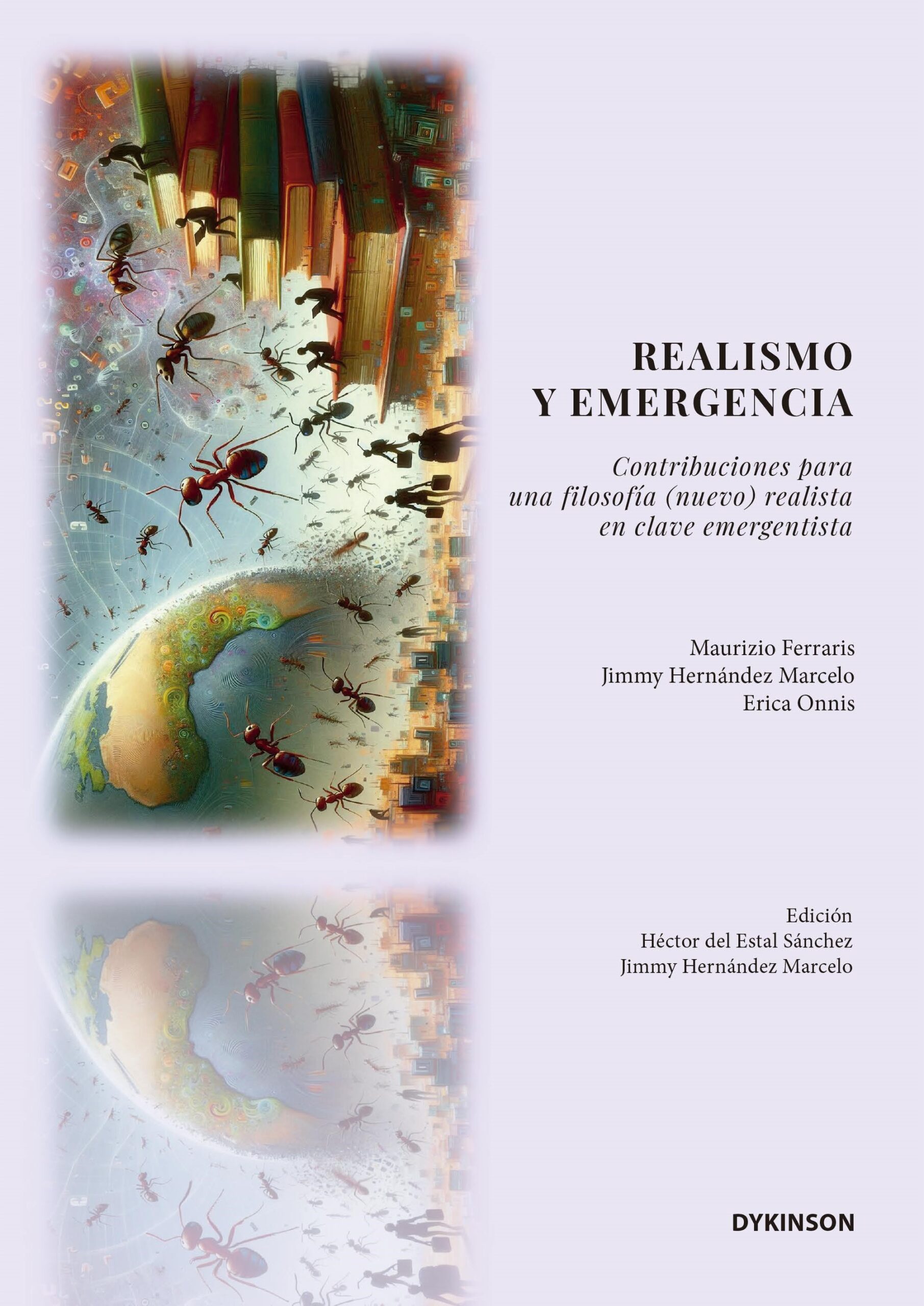
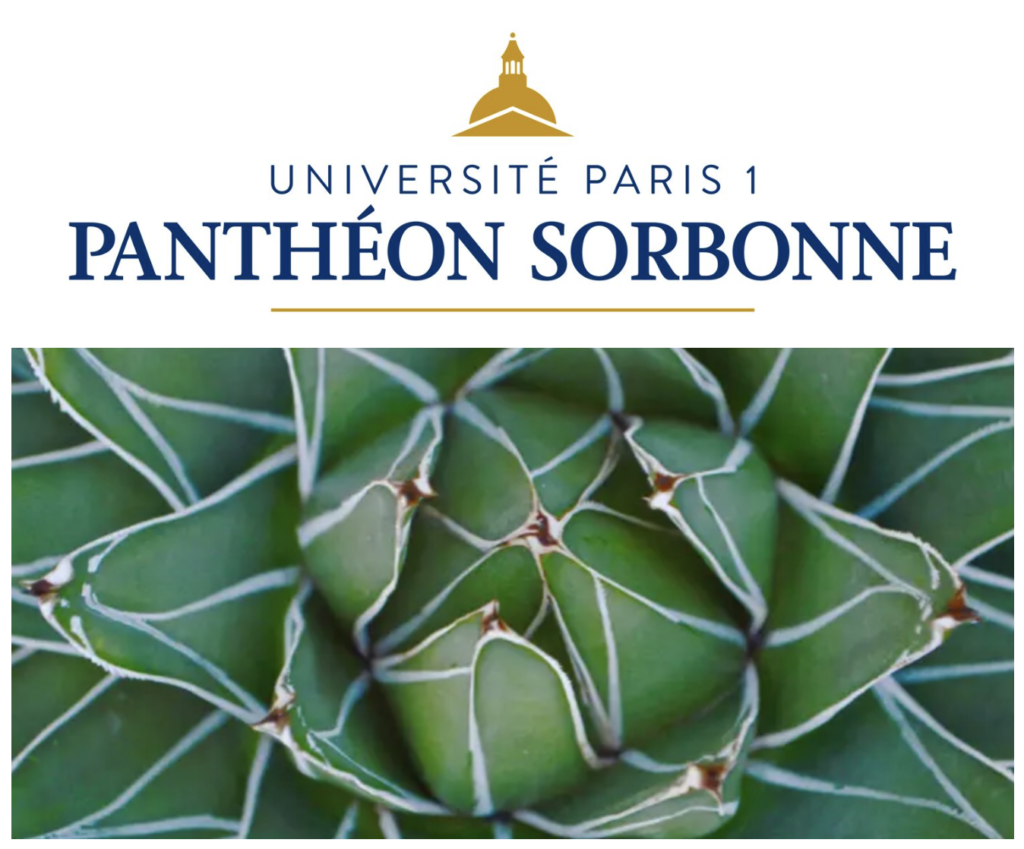
Workshop Réalisme et Émergentisme
Paris, 23-24 Octobre
Université Paris 1, Centre Lourcine, 1, rue de la Glacière, Bâtiment Recherche, salle 13
Ces deux journées d’études interrogent les usages et la pertinence de la notion d’« émergence » pour le réalisme antiréductionniste contemporain. Utilisée à divers degrés par les scientifiques, les épistémologues, les philosophes de l’esprit, les phénoménologues et les Nouveaux réalistes, pour décrire les niveaux stratifiés et interdépendants d’un réel à la fois atomique, moléculaire, cellulaire, organique mais aussi conscient, logique et social chez l’humain, on lui reproche néanmoins souvent son imprécision, et le manque d’unité du courant émergentiste. Selon les disciplines, des sciences naturelles aux sciences sociales, a-t-on besoin d’une notion d’« émergence » faible ou forte, causale ou qualitative, synchronique ou diachronique ? Les interventions mettront en lumière certains usages descriptifs de l’émergence, de la physique à la psychologie ou la sociologie, tout en proposant de porter un regard historique et critique sur le concept.
Programme

6th Weekend Seminar on Philosophy of Physics. Fundamentality and Emergence
Nijmegen, 6 – 8 September 2024
Radboud University, Huygens Building, HG 1.060
Webpage
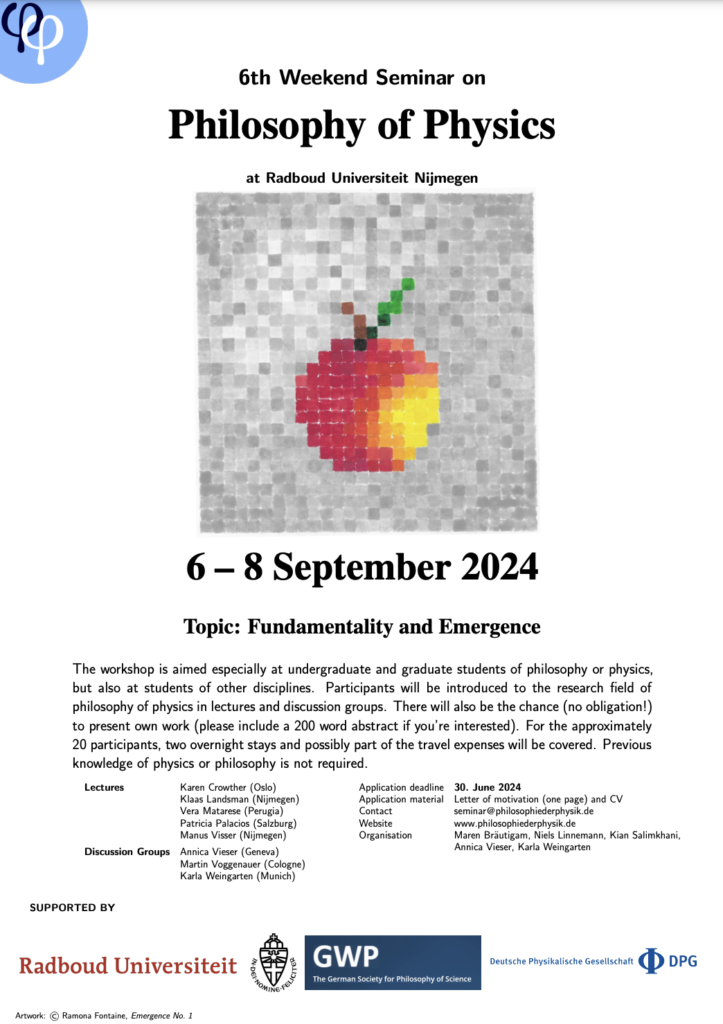

XXV World Congress of Philosophy – Philosophy Across Boundaries
Rome, August 1st-8th
Philosophy across Boundaries is the general theme of the 25th World Congress of Philosophy, which will be held in Rome, Italy, from August 1st to August 8th, 2024. Under the joint responsibility of the International Federation of Philosophical Societies, the Italian Philosophical Society, and Sapienza University of Rome, the 25th World Congress intends to foster scholarly and public reflections on the future of our societies.
Among the invited sessions:
Emergent Properties Beyond Reductionism. Towards a New Metaphysics
August 2nd, h. 17.00-19.00
Organizer: Andrea Velardi (Italy)
The session aims to address the debate about the re-emergence of emergentism, an antireductionist perspective about natural, psychological, and social phenomena that considers reality as an integrated system characterised by different properties belonging to different levels of organisation. Emergentism emphasizes the double dimension of autonomy and dependence. Participants will address theoretical issues like the characterization of weak and strong emergence, the problem of emergent causal efficacy, the features of novel emergent patterns, downward causation, and possible case studies and fields of application.
Participants: Andrea Velardi, Margarida Hermida, Erica Onnis, Carl Gillett, Timothy O’Connor.
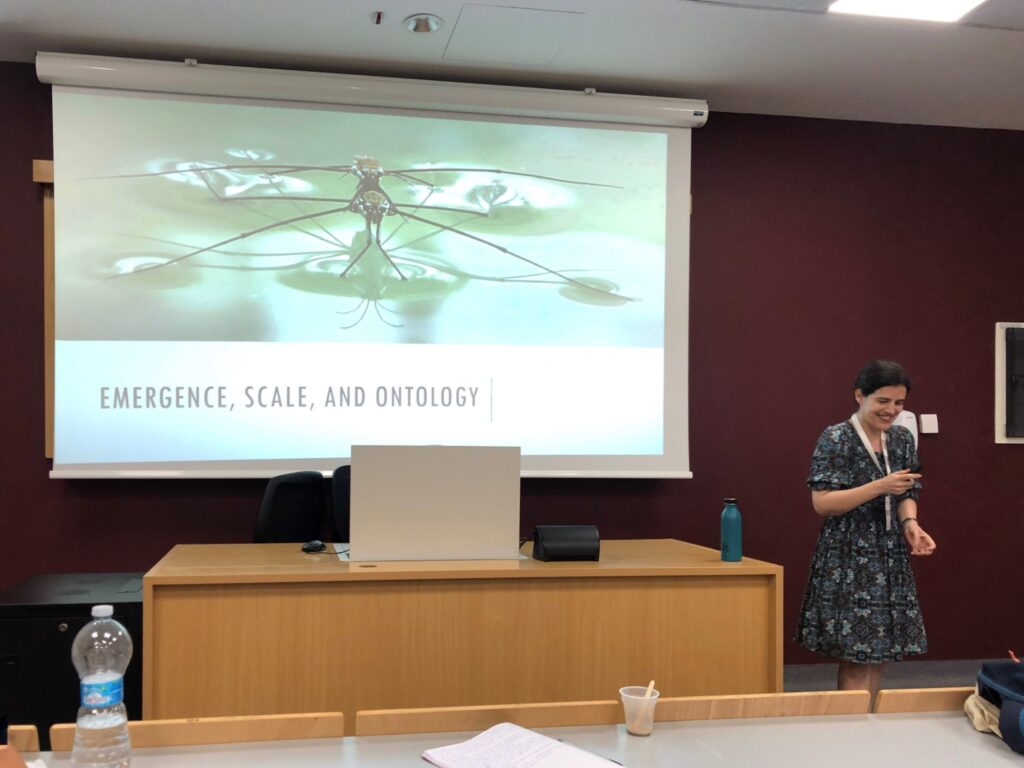
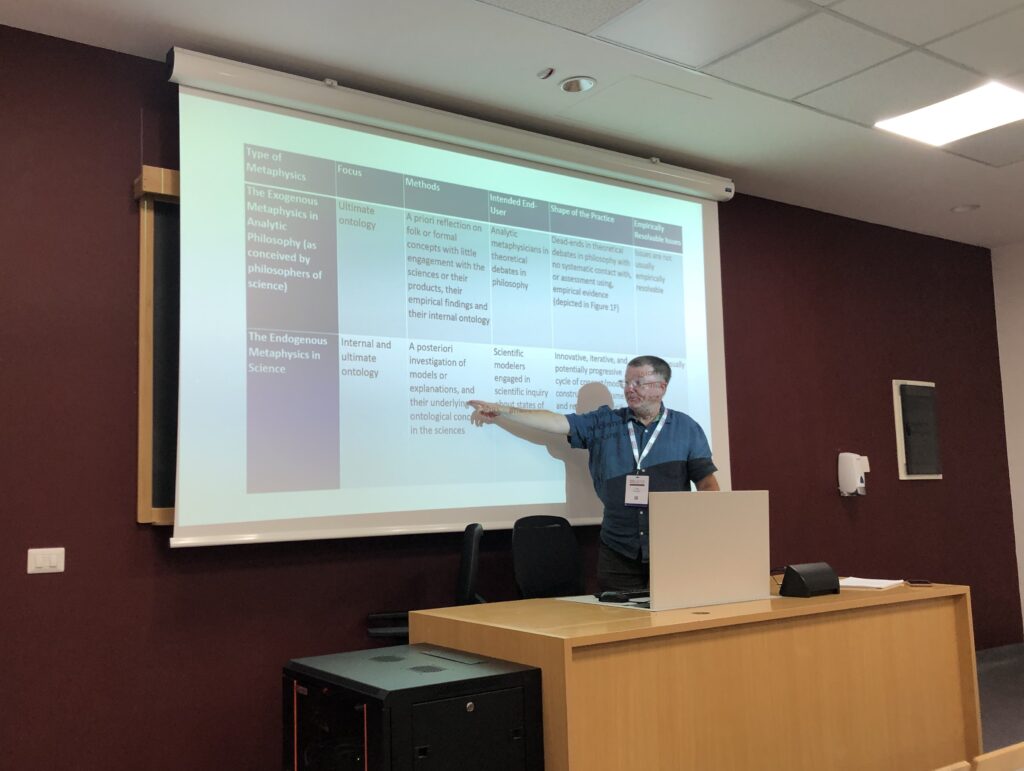
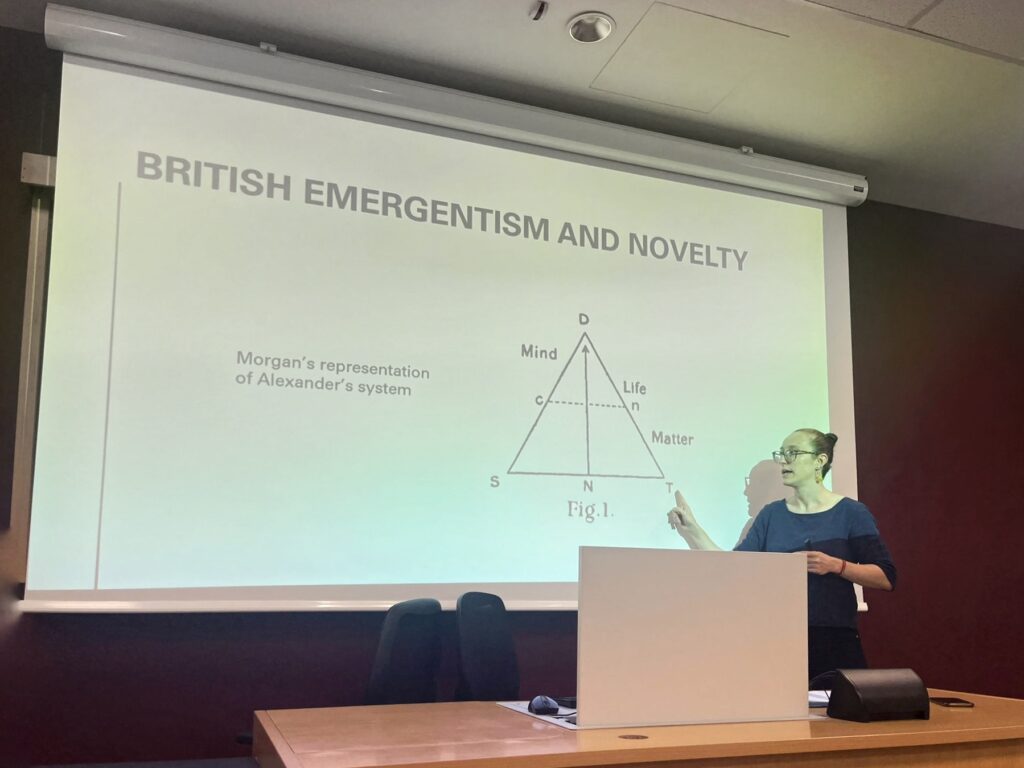
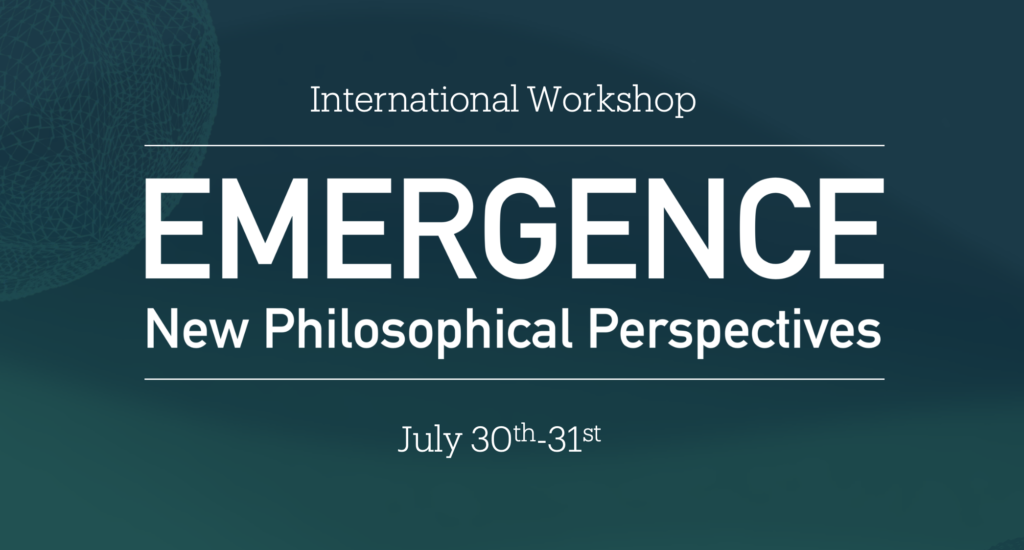
International Workshop. Emergence. New Philosophical Perspectives
Rome, July 30th-31st
Aula LED, Cusano University, Via Don Gnocchi 3
The Workshop Emergence. New Philosophical Perspectives explores the relationship between emergence, reductionism, causation, and complexity in different ontological domains and scientific fields.
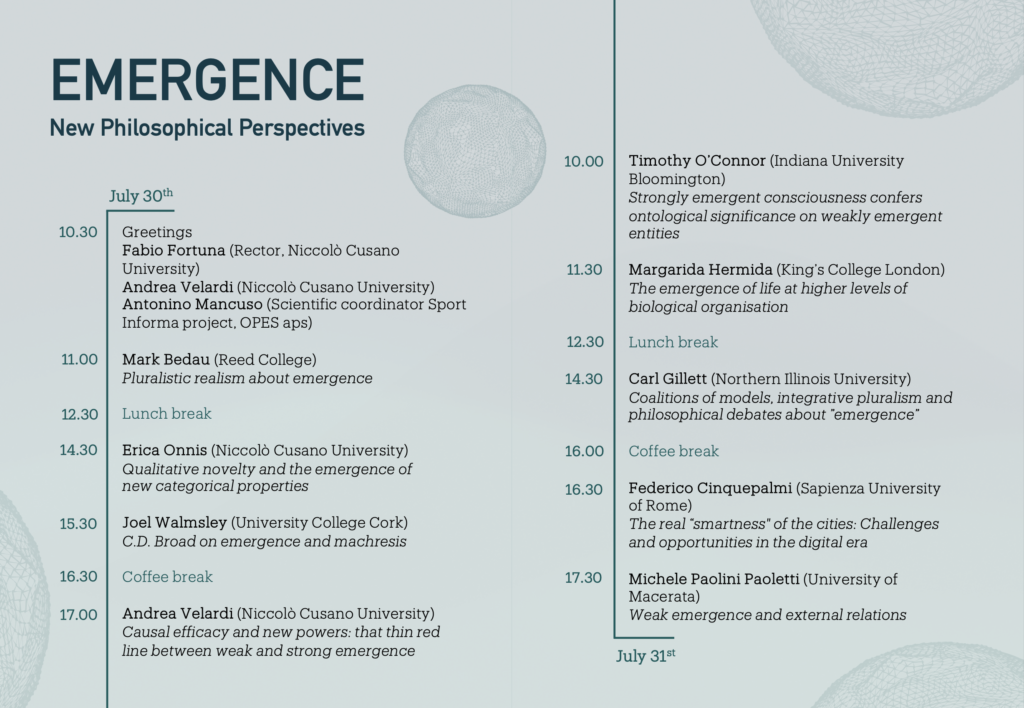
Download the programme
Download the poster
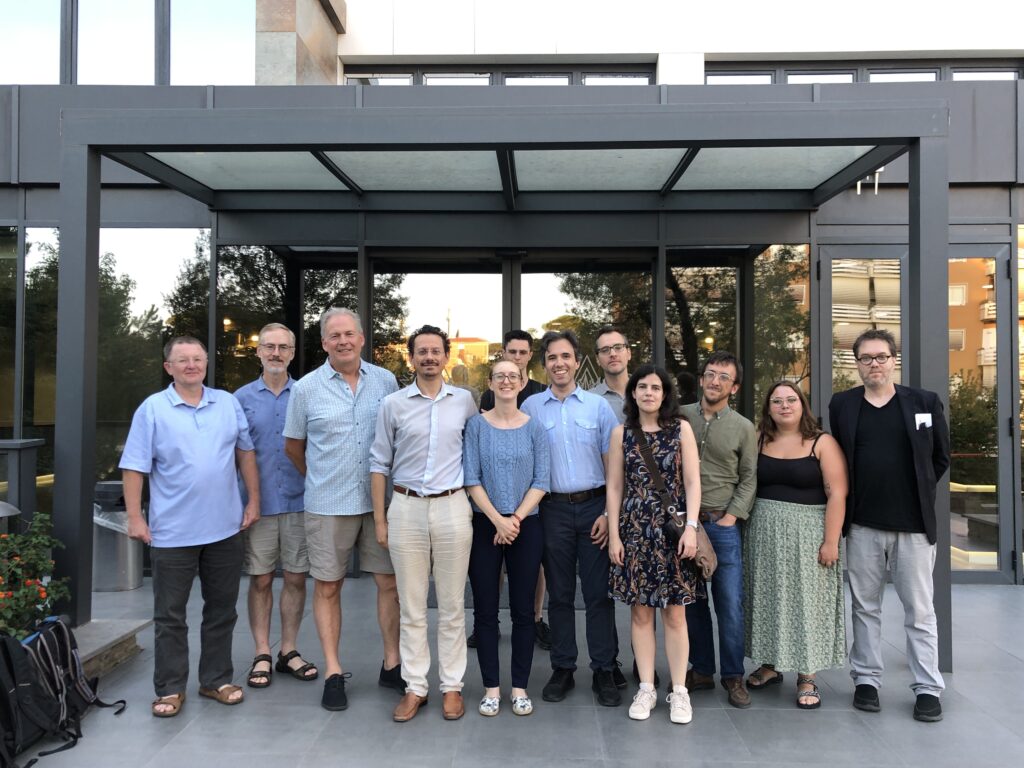

Onnis, E. (2024). Emergenza. APhEx. Rivista Italiana di Filosofia Analitica, 29, 2024.
A partire dagli anni Novanta del Novecento, il concetto di emergenza occupa un posto di rilievo in numerosi dibattiti di filosofia della mente, metafisica e filosofia della scienza. I fenomeni emergenti sono solitamente definiti come quelle entità che dipendendo parzialmente da altre entità di livello inferiore pur manifestando una certa autonomia e qualche forma di novità rispetto a esse. Il generale consenso su queste caratteristiche, tuttavia, si accompagna a un altrettanto generale disaccordo sul loro preciso significato. Scopo di questo Tema è introdurre il dibattito sull’emergenza, esaminando i criteri formulati per descriverla e le varie forme che essa sembra assumere quando analizzata da prospettive o in contesti diversi.
Since the 1990s, the concept of emergence has been prominent in many debates in philosophy of mind, metaphysics, and philosophy of science. Emergent phenomena are usually defined as entities that partially depend on lower-level goings-on while manifesting a certain autonomy and exhibiting some form of novelty. The general agreement on these features, however, goes hand in hand with an equally general disagreement on their precise meaning. The purpose of this contribution is therefore to introduce the debate on emergence by examining the criteria for describing fit and the various forms it seems to assume when analyzed from different perspectives or in different contexts.
Leggi l’articolo cliccando qui

Erica Onnis, Emergence: A pluralist approach
Theoria. An International Journal for Theory, History and Foundations of Science, 38(3), 339–355.
Despite the common use of the concept of emergence, no uncontroversial theoretical framework has been yet formulated in this regard. In this paper, I examine what this circumstance suggests about the significance and usefulness of this concept. I first trace a brief history of the notion of emergence from its first formulation among the British Emergentists to its contemporary uses. Then, I outline its most common features and examine three examples of emergent phenomena, namely particle decay, free will, and division of labour in ant colonies. These three cases of emergence exhibit different features and imply criteria which only partially overlap. I then suggest that the multiplicity of features and criteria recognised as defining emergence, rather than being a threat to the tenability of the concept, should encourage the assumption of a pluralist attitude that is consistent with both the employment of this idea in different sciences and the recognition of emergent phenomena across different levels of organisation. Finally, I propose that emergence can be approached in a similar way to how Richard Boyd approached the problem of natural kinds, namely by identifying an open cluster of properties, rather than a set of necessary and sufficient conditions.
Read the paper by clicking here
Etxeberria Agiriano , A. ., & García-Encinas, M. J. (eds). Philosophical Lessons from Complexity: Sandra Mitchell’s Contribution to Philosophy of Science
This monographic issue contains a long article bringing together the Lullius Lectures delivered by Professor Sandra Mitchell during the Xth Conference of the Society of Logic, Methodology, and Philosophy of Science in Spain, that took place in Salamanca (16-19 November, 2021). The publication of her Lectures is complemented by six original articles that address and examine different aspects of Sandra Mitchell’s contributions to the philosophy of science. In this introduction to the monograph, the editors present the broad outlines of the Lullius Lectures given by Mitchell on the landscape of integrative pluralism. We accompany this overview with a review of some of the fundamental concepts of her philosophy as reviewed and discussed by the original articles included in the monograph on integrative pluralism, emergence, scientific laws, and realism.
Webpage
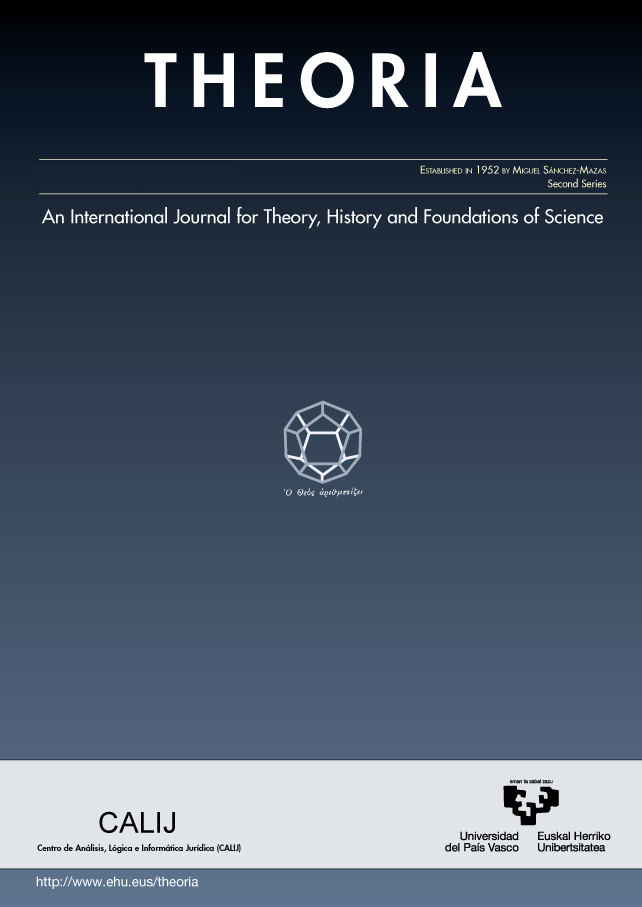
Erica Onnis, Metafisica dell’emergenza (Rosenberg & Sellier, 2021)
Negli ultimi anni, il richiamo al concetto di emergenza si è fatto sempre più diffuso in molte aree della filosofia e della scienza. Il termine viene usato per riferirsi alla circostanza in cui un sistema (fisico, chimico, biologico, ma anche sociale) manifesta delle proprietà e dei comportamenti che sembrano nuovi rispetto a quelli delle sue parti più semplici. Questo libro si propone di chiarire questo fenomeno, tenendo conto, da un lato, che le discipline coinvolte nel dibattito sono molte, quindi un approccio univoco all’emergenza potrebbe non bastare e, dall’altro, che per comprendere cosa sia l’emergenza è necessario delinearne le relazioni con altre questioni filosofiche di primaria importanza come quelle che coinvolgono la fondamentalità, la complessità e la causalità.
Webpage
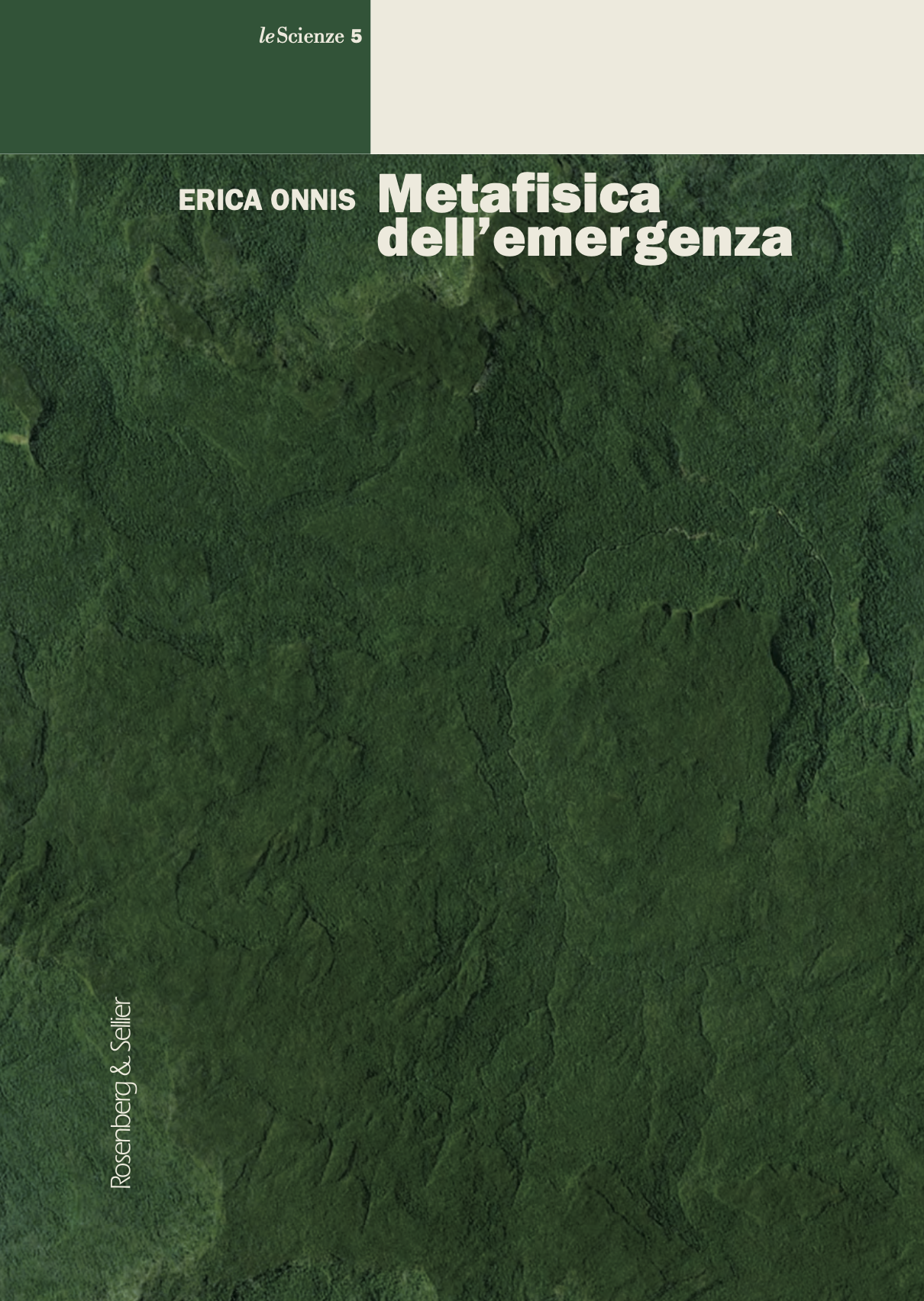
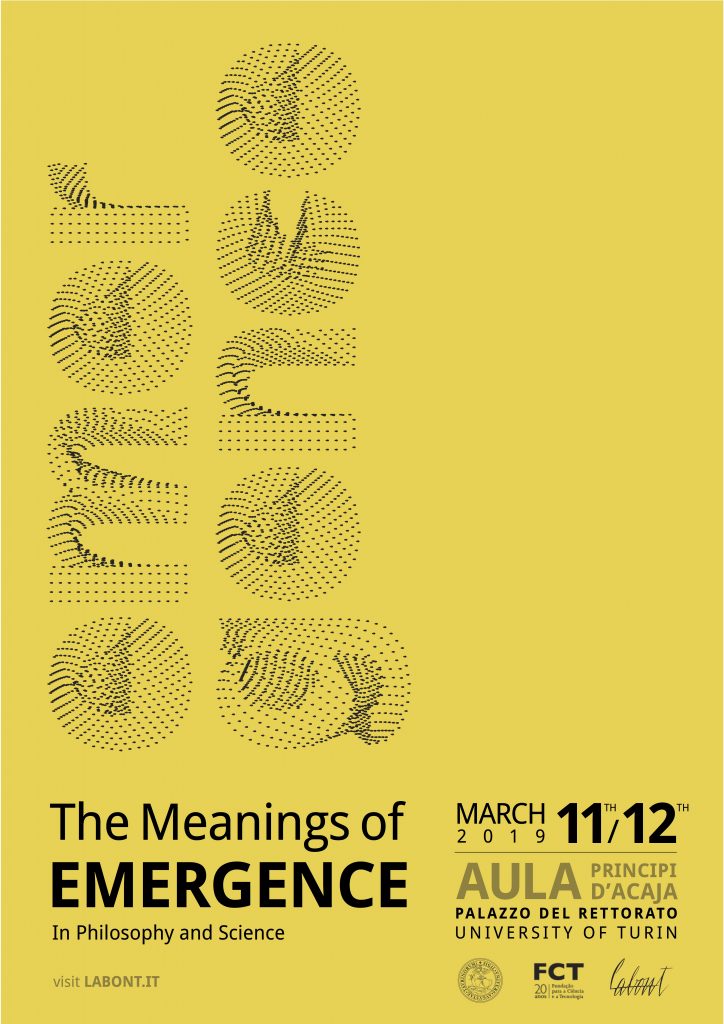
The Meanings of Emergence in Philosophy and Science
University of Turin, March 11th-12th, 2019
In the last decades, the interest in the notion of emergence has grown steadily. As testified by several debates in philosophy and science, emergence has proved to be suitable to describe and better understand a conspicuous number of natural phenomena in disciplines such as physics, chemistry, biology, complexity science, and so on. Moreover, the notion of emergence is broadly used in contemporary metaphysics, as well as in philosophy of mind, to define certain relationships of ontological and nomological dependence.
Despite being broadly invoked, however, no uncontroversial definition of emergence has been yet formulated and there is no consensus in the scientific and philosophical world about the precise meaning, the methodological value, and the real theoretical potential of the notion.
The aim of the international conference The Meanings of Emergence in Science and Philosophy is to gather experts from different disciplines in order to clarify the notion of emergence and to assess its relevance within different scientific and philosophical fields.
Programme
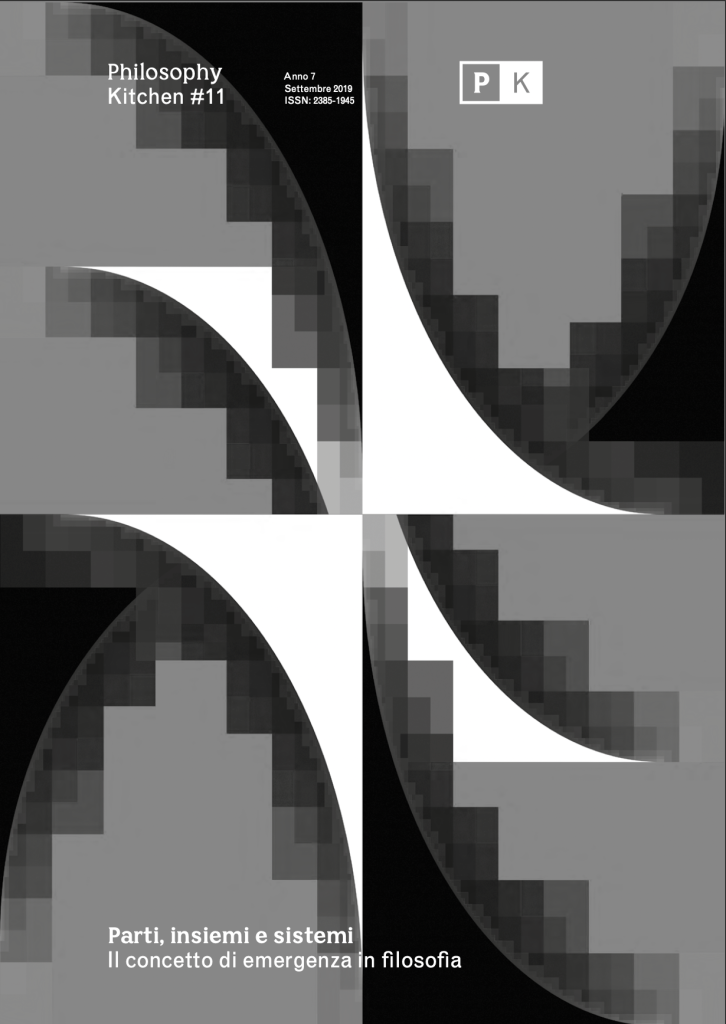
Parti, insiemi e sistemi. Il concetto di emergenza in filosofia
A cura di Erica Onnis. Philosophy Kitchen VII, n. 11 (2019)
Il concetto di emergenza viene elaborato nell’Ottocento in Gran Bretagna per poi subire un’eclissi a partire dagli anni Venti del Novecento. Da alcuni anni a questa parte, tuttavia, filosofi e scienziati hanno ricominciato a usare questo termine e a riferirsi a questa nozione che pare promettente per descrivere un certo numero di fenomeni naturali, psicologici e sociali.
Questo numero di Philosophy Kitchen fornisce una panoramica del dibattito contemporaneo, offrendo al lettore più chiavi di lettura per avvicinarsi a esso nel contesto delle varie discipline interessate.
Indice
Erica Onnis, Introduzione
Joel Walmsley, Verso una riconsiderazione dell’Emergentismo Britannico
Erica Onnis, Definire l’emergenza
Olivier Sartenaer, Emergenza piatta
Karen Crowther, L’emergenza dello spazio-tempo nella gravità quantistica e nella cosmologia quantistica
Marina Paola Banchetti-Robino, Sull’inadeguatezza della mereologia formale husserliana per l’ontologia regionale degli interi chimici
Luciano Boi, On emergence and causality in the living world
Isaac Hernandez, Comment penser l’émergence d’un individu biologique à partir d’une collectivité d’individus biologiques?
Alfredo Paternoster, The emergence of emergentism in cognitive science
Micheal W. Stadler, The emergence of insight in problem solving
Alessandro Bertinetto, L’emergentismo nell’arte
Maurizio Ferraris, Che cosa può la registrazione?
Maria Mancilla Garcia, Tilma Hertz, The event: a process ontological concept to understand emergent phenomena
Visualizza il numero completo cliccando qui
Webpage